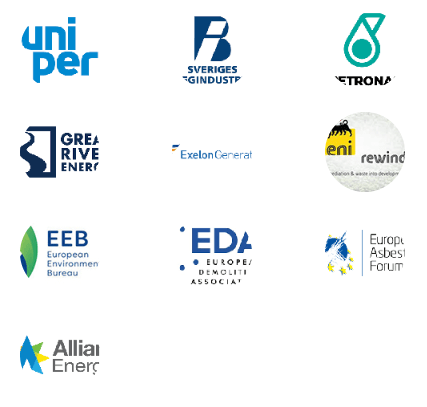7th Annual Decommissioning & Demolition Forum for High Hazard Process Plants: Fossil-Fuel Power Plants, Chemical/ Petrochemicals and Refineries
About the Conference
European energy companies have been actively phasing out their fossil-fuelled assets over the last several years. Thermal generation in general is in decline due to both environmental regulations and cheaper alternative fuels.
All of this begs the following questions – if a power plant is shut down and it will not be used in the future, what does the utility company do with it? Can the power plant be used elsewhere? Can it be dismantled and recommissioned? The demolition of a power plant is often the last option, because it is time consuming and costly. However, especially for old power plants (and especially if they are in a bad condition) it is not easy to reuse the plant or sell the plant. In that case the power plant will be demolished.
Meanwhile, the European refining industry faces major challenges in the next 20 years as a result of energy cost and increased regulation. The challenges could mean as much as 40 out of the 82 refineries in Europe could face closure. The regulations for refineries in Europe, especially environmental regulation, is much stricter than in other parts of the world, as well as the energy cost which makes refining’s cost far higher here in Europe than anywhere else. European refineries cannot keep up with foreign competitors in such circumstances.
Lastly, the chemical and petrochemical industries in Europe are facing a bleak future as well. European chemicals have been facing low sales growth in the past ten years and high relative cost of production leading to a shift of manufacturing base to emerging countries. As it stands Europe is now one of the most expensive places in the world to make petrochemicals, with Europe being unable to compete with America, the Middle East and China. A number of chemicals players in Europe have been shutting down operations as manufacturing has become increasingly expensive owing to relatively higher feedstock and labor costs. In the past few years, around 144 chemicals plants in Europe have either been closed or are currently nonoperational accounting for 12% of the total chemicals capacity in Europe.
During this TBM event professionals and experts will discuss various cost-saving and effective strategies for decommissioning, demolition, repurposing, redevelopment and remediation processes.
Key topics:
- Ensuring the highest possible HSE standards across all of your decommissioning and demolition activities
- Identifying and overcoming the challenges in effective hazardous material management
- Best practice in decommissioning and demolition process management
- Design of asbestos removal from large-scale industrial site assets
- Best practice in circularity, reuse and recycling of materials as a fundamental part of your decommissioning and demolition strategies
- Next generation decommissioning – How can we ensure greater sustainability of our activities?
- Ensuring compliance to developing national and international regulation impacting decommissioning and demolition
- Ensuring sustainable chemical disposal and contamination reduction
- Identifying and meeting the challenges in the effective decommissioning of asbestos containing structures
- Best-practice techniques and methodologies for safe and effective facility demolition
- Best practice strategies for positioning plants for post-decommissioning
- Effective risk identification, mitigation and management as a core part of your demolition and restoration process – Lessons learnt from Great River Energy
- Determining the challenges of decommissioning and demolition in the age of Covid-19



